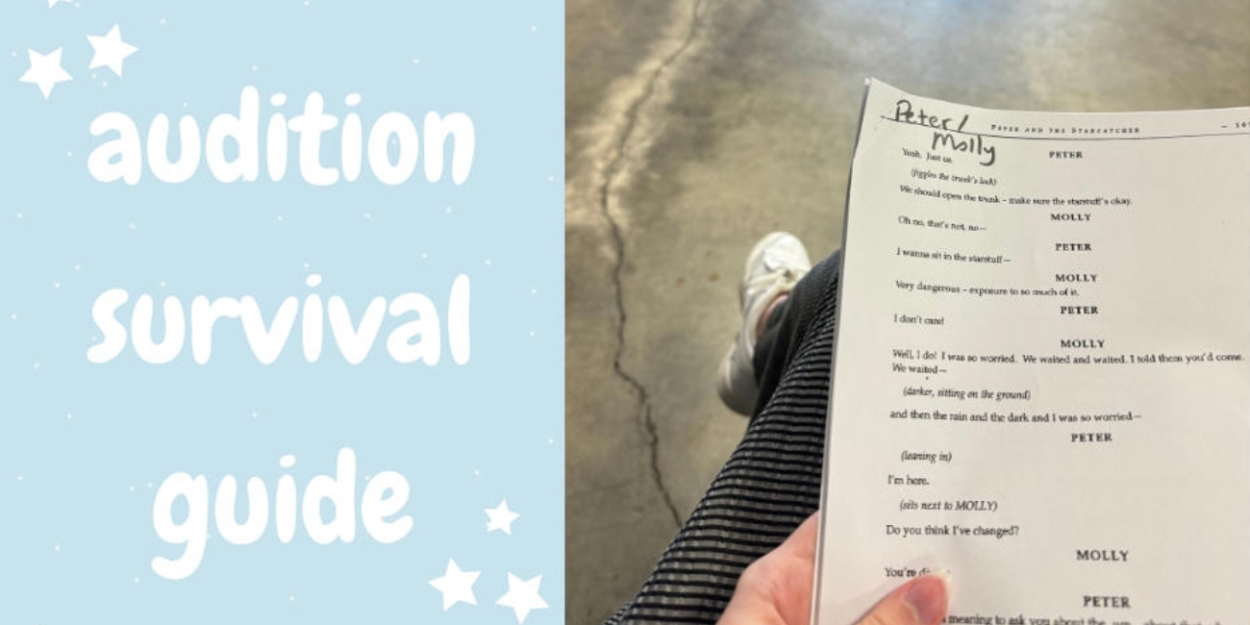Student Blog: Your Audition Survival Guide
The key? The very tools you keep in your audition bag.

Welcome to an actor’s favorite (and most feared) time of the year: audition season. If you’re like me, you always want to put your best foot forward and have an air of professionalism. This is difficult to accomplish when, as a performer, you don’t know where to start. For it being 2024, it is unreasonably complicated and just plain hard to find the right information and advice. Over the past few months I have developed my very own guide to this hard to navigate industry. For every article or TikTok video that makes sense, there is always another one to contradict it. With the help of some industry professionals, I have perfected how to survive an audition without anyone knowing it might be your first. The key? The very tools you keep in your audition bag.
Number one, if you don’t have an audition bag, please invest in one. Not only does it keep you organized, but it can keep you safe. I recently saw a creator post a video about how she received a DM from someone who found her online presence solely off of her name/headshot on the cover of her binder. Please prioritize your safety and store any identification or information that could put you in an uncomfortable or dangerous situation within a bag. Your audition bag could be anything from a backpack to a Trader Joe’s reusable tote; my absolute favorite way to show off my love for theater while transporting my necessities to an audition (or rehearsal) is by using a tote from my favorite shows’ merch stands. Don’t forget to pack some easily forgettable essentials: water, lozenges, character shoes or the shoe needed for the show’s style (even if it isn’t a dance call), a snack, a form of identification/your equity card, and headphones to get in the zone. The most important items can be the most confusing to master: resume/headshot and your repertoire book.
Have you ever heard the saying, “quality over quantity”? This should be your motto for your resume, however, there are exceptions. If you are just starting out, list every role until you get to the point where you can be picky. Your high school roles should be seen as temporary place holders and only used until you have enough new roles or you graduated a while ago. All this to say, keep your resume updated. Your ‘special skills’ section can, also, vary based on the number of roles/experience you have. It can be bulkier, as filler, or it can consist of only the highlights, to allow for more space. Whatever the case may be, be prepared to showcase every special skill, at the drop of a hat; none of your listed skills should be anywhere below the proficient level. (Tip: list the director of the project along with the theater company, you never know who knows who.)
Similar to your resume, your audition book should favor quality over quantity. What even is a repertoire book and what should you have in it? Your rep book holds the sheet music of all of your audition songs. It should be organized into song categories: Pop/Rock, Contemporary Musical Theater (Ballad), Contemporary Musical Theater (Up-Tempo), Disney, and Golden Age. As a rule of thumb, each category should have at least two songs, but have a limit. Just like your special skills, you need to be prepared to perform every song in your book, at any given moment. If you’re not confident in a song, don’t include it. The song is great 80% of the time? Don’t include it. Be picky. Your book should only contain the audition cuts you are great at. Think of it as your vocal highlight reel. If you are looking for more, similar resources, check out these creators: @megsvoicestudio, @julielorenzocoaching, or @emilykristenmorris
Now, go out and nail your auditions! Don’t forget to bring your confidence and kindness, it will take you the farthest. Remember, I believe in you!
Until next time,
Brynna
ig: @_br.ynn_
tt: @brynnaweir
"Things are only worth what you're willing to give up for them"
Comments

Videos

